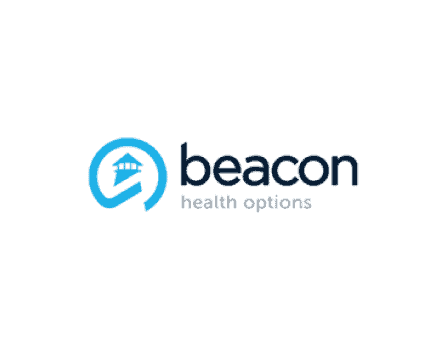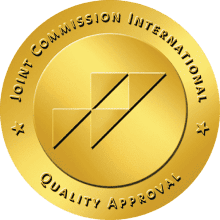Drug Detox
Our professional drug and alcohol detox services coming soon will offer clinical support and a solid foundation for recovery from substance abuse.

What is Drug Detox?
Drug detox is a medically managed, short-term process in which the body’s chemistry gradually returns to normal after the cessation of drug use. This process can help people safely quit drugs or alcohol while limiting and managing withdrawal symptoms like nausea, vomiting, agitation, and insomnia. Depending on the substance of abuse, detox may take anywhere from a few days to several weeks.
What’s the Process of Detoxification?
The detox process at Hillside Detox involves healthcare professionals such as physicians, nurses, and addiction specialists that keep our clients safe and comfortable while their bodies rid themselves of substances and associated toxins caused by substance use.
While detoxification can be physically and psychologically challenging, it is often the foundation for successful addiction recovery. An effective drug and alcohol detox program involves three important pillars:
Comprehensive Medical Evaluation
The first and most important step in the detox process is a comprehensive medical evaluation. One of our board-certified physicians will start by screening physical and mental health issues using blood tests to measure drugs in a patient’s system, a physical exam to assess the nature of the addiction and its duration and a mental health screening to identify any underlying mental health conditions. This evaluation helps us determine an individualized addiction treatment plan that considers your unique needs, active addictions, history of substance use, associated mental health conditions, etc., to set you up for success in the addiction recovery process.
Facilitating Ongoing Quality Treatment
During stabilization, patients receive specialized care to ensure their bodies can tolerate withdrawal. Depending on the addiction, withdrawal symptoms can be severe and even life-threatening. The medical staff at Hillside Detox helps patients manage addiction withdrawal and safely transition through the detox process. We provide 24/7 care for our clients and administer addiction medications to reduce or eliminate withdrawal symptoms and prevent relapse. Stabilization is typically the most difficult stage a person experiences during detox at our drug rehab and can last anywhere from a few days to several weeks.
Stabilization
Once a patient has completed detox, the final phase involves facilitating entry into continued care to gain the tools and resources needed for long-term addiction recovery. We often recommend our inpatient program for alcohol and drug treatment as it’s designed to provide a safe, comfortable environment for individuals to focus on rebuilding their lives and learning the essential skills needed to recover from addiction. With the help of a residential addiction program, people addicted to drugs or alcohol can undergo drug abuse treatment and mental health services to work through their addiction, participate in support groups and relapse prevention programming, build a strong support system, and develop healthy lifestyle habits.
At Hillside Detox, our team of medical professionals and addiction specialists provide safe and effective medical detox services for individuals 18 years and older detoxing from alcohol and drugs, including opiates, alcohol, benzodiazepines, cocaine, amphetamines, methamphetamines, and more.
Get Answers to Your Questions Now
Are you looking for information on addiction treatment options, or just need someone to talk to? We are here to help. The treatment specialists at Hillside Detox are available 24/7 to offer support, resources, and care for you or your loved one.
Drug and Alcohol Withdrawal Symptoms
Withdrawal symptoms may occur in various stages, leading to further health problems if left untreated. Symptoms can remain for days, weeks, months, or even years, depending on the type of addiction, the amount of time a person has struggled with addiction, and their physical and mental health.
It’s common for addiction withdrawal symptoms to appear as early as 1-2 hours after your last drink or use of addictive substances. While there is no exact timeline for when or what addiction withdrawal symptoms you will experience, the following is a general guideline of what you can expect:
First 6-12 Hours
Withdrawal symptoms may appear within the first six to twelve hours after the last use of drugs or alcohol. Early signs of drug and alcohol withdrawal often show as mild symptoms but can quickly worsen as time goes on. Some early withdrawal symptoms include nausea, vomiting, and sweating.
Day One
As you end the first 24 hours of detoxification, more intense addiction withdrawal symptoms may occur. In addition to the drug and alcohol withdrawal symptoms experienced in the first 12 hours, additional symptoms may include intense cravings, disorientation, tremors, severe agitation, confusion, and paranoia.
Day Two
Comparable to the first full day of drug and alcohol detox, more severe withdrawal symptoms will continue into the second day. During this time, an individual may experience intense psychological symptoms such as anxiety, depression, and panic attacks.
Day Three
More serious symptoms may develop during the third day of withdrawal. These can include seizures as well as delirium tremens (DTs). Delirium tremens is a condition associated with alcohol withdrawal that includes extreme confusion, hallucinations, and seizures. DTs can lead to a stroke, heart attack, and even death if not treated immediately.
Day Four to Seven
During the fourth to seventh day of detox, symptoms of drug and alcohol withdrawal may come and go. This is the period when individuals are at greater risk for life-threatening symptoms such as delirium tremens.
Beyond Day Seven
After a full week of detoxification, most physical drug and alcohol addiction withdrawal symptoms will have subsided. However, depending on the individual, the severity of their addiction, and any underlying medical conditions, some people may experience symptoms or cravings for up to two weeks or more after their last use.
Even when the most serious drug or alcohol addiction withdrawal symptoms have tapered down, some people will experience post-acute withdrawal syndrome (PAWS) – a set of withdrawal symptoms that can last several months to a year and may include insomnia, anxiety, depression, difficulty concentrating, delayed reflexes and cravings.
The length of detox and the physical symptoms experienced during detox depend on several factors. However, by understanding the various stages and symptoms associated with drug and alcohol detox, individuals can feel comfortable receiving the proper medical care to safely manage the addiction withdrawal process. Hillside Detox provides comprehensive addiction care for substance abuse and mental health challenges, including detoxification and treatment services for even the most severe addictions.
Benefits of a Detoxing at Hillside Detox
At Hillside Detox, we provide a safe and secure environment for individuals to heal from the physical, mental, and emotional damage caused by substance use. Some of the many benefits of detoxing at Hillside Detox include the following:
- Our experienced clinicians provide 24-hour medical monitoring throughout the detox process.
- Our professional setting allows for the early detection and treatment of any underlying medical issues which can be exacerbated by drug and alcohol abuse.
- Our team members have many years of experience treating a multitude of substance use disorders and are committed to providing personalized and compassionate care for each patient.
- Clients have around-the-clock access to clinical care and emotional support that can help manage symptoms and cravings and reduce long-term risks associated with drug and alcohol addiction.
- The close monitoring of our professional detox allows us to measure progress and adjust as necessary to ensure that each person’s individual needs are met.
- Our comprehensive approach to addiction care focuses on client education, relapse prevention, and holistic healing.
- Our treatment center offers individualized care in a home-like atmosphere that can help to create a sense of safety and comfort during the recovery process.
The detoxification process is an important first step in the journey to long-term sobriety, and Hillside Detox is here to provide compassion and support every step of the way.
Get Help With Addiction at Hillside Detox
At Hillside Detox, we are committed to providing individualized, compassionate care to our patients on their journey to recovery. With the right support, guidance, and treatment plan, you can overcome addiction and lead a happy, healthy, and fulfilled life. We encourage you to call (781) 332-4135 for more information on our addiction treatment programs.
Most Insurance Plans Accepted






Addiction Treatment Programs
Verify Your Insurance
"*" indicates required fields
World Class Amenities
- Cell phones allowed
- Gym and fitness center
- Onsite spa services
- Entertainment theater
- Recreation room
- Support animal friendly
Ready to Get Help?
We have helped countless individuals empower themselves to recover and get the substance use and mental health treatment they need. Know that you’re not alone in this, we are here to help.

We Are Here to Help
Contact us through the confidential form below for assistance on how to find Alcohol Detox, Alcohol Rehab, and a Drug Addiction Treatment Center in Massachusetts.
"*" indicates required fields
